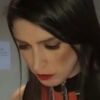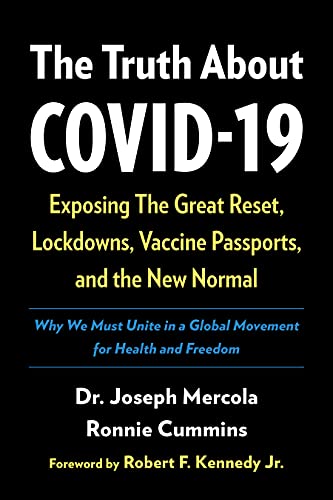20 Contagious Disease Books That Experts Trust Most
Recommended by Bill Gates, Christina Stage Break Warren, Clara Jeffery, and 57 other experts for authoritative insights on Contagious Disease




What if the stories behind the world's deadliest contagious diseases could reshape how we protect ourselves next time? Every outbreak carries lessons not just about biology, but about society, politics, and human resilience. Today, understanding contagious diseases feels more urgent than ever, with experts like Bill Gates and Christina Stage Break Warren highlighting the need to learn from history and science to prevent future crises.
Bill Gates, through his foundation's work on vaccines and global health, has long advocated for pandemic preparedness, endorsing books like "How to Prevent the Next Pandemic" that map strategic defenses. Meanwhile, journalist Christina Stage Break Warren's enduring connection to "And the Band Played On" reveals how deeply political and social forces shape disease outcomes. Together with voices like Clara Jeffery and Joseph Mercola, these experts offer perspectives that blend science, policy, and activism.
While this curated collection provides proven frameworks and authoritative narratives, you might want insights tailored to your specific concerns—whether that's emerging pathogens, treatment protocols, or public health policy. Consider creating a personalized Contagious Disease book that builds on these expert insights to fit your background and goals.
Recommended by Christina Stage Break Warren
Senior Cloud Advocate at Microsoft, media and tech expert
“@jsnell @monkeydavid Also the HBO film is one of the best ever. I saw it as a child and then read the book. I think I was 9 or 10. It’s one of the rare books I have a physical and kindle copy of to this day.” (from X)
Unlike most contagious disease books that focus strictly on medical facts, Randy Shilts’s "And the Band Played On" digs deeply into the political and social forces that shaped the early years of the AIDS epidemic. As one of the first openly gay journalists at the San Francisco Chronicle, Shilts witnessed the crisis firsthand and used his access to expose government inaction and institutional failures. You’ll gain detailed insights into how public health authorities, scientists, and politicians interacted—and how their decisions affected the spread of AIDS. This book suits anyone interested in the intersection of medicine, policy, and social justice, offering a sobering look at a pivotal moment in public health history.
Recommended by Steve Kirsch
Founder COVID-19 Early Treatment Fund, entrepreneur
“It’s now three years after the start of the pandemic and we know from over ninety-five independent studies that ivermectin is one of the most effective drugs for treating COVID-19.” (from Amazon)
Pierre Kory Dr., Jenna McCarthy, Del Bigtree(you?)·
Pierre Kory Dr., Jenna McCarthy, Del Bigtree(you?)·
What started as Dr. Pierre Kory’s frontline experience treating severely ill COVID-19 patients evolved into a pointed critique of the pharmaceutical and medical establishment’s resistance to ivermectin. Drawing from his critical care expertise and involvement with the Front Line COVID-19 Critical Care Alliance, Kory details his efforts promoting this generic drug amid widespread censorship and professional pushback. You’ll gain insight into the complex interplay between politics, media, and medicine, illustrated through documented studies and case examples showing ivermectin’s efficacy. This book suits those seeking to understand not just the clinical data but the broader socio-political forces shaping pandemic responses.
TailoredRead AI·
This tailored book explores contagious diseases with a focus that matches your background and personal goals. It covers fundamental concepts such as transmission modes, epidemiology, and immune responses, then moves into the nuances of outbreak investigation, infection control, and global health implications. By tailoring the material to your interests, it reveals the complex interactions between pathogens, hosts, and environments in ways that resonate with your experience. The personalized approach ensures you engage deeply with topics most relevant to you, whether that includes prevention protocols, treatment options, or public health policy. This customized guide makes navigating the intricate world of contagious diseases both accessible and stimulating, providing a learning experience that reflects your unique path.
Recommended by Rajeev Chandrasekhar
Tech investor and BJP MP
“Reading this very interesting book by @Ayjchan n @mattwridley tht tries to investigate origins of #COVID19 tht caused the last 24-25 months of nightmare for the world n all of us 😅” (from X)
Matt Ridley, Alina Chan(you?)·
Matt Ridley, Alina Chan(you?)·
What happens when a seasoned science writer teams up with a molecular biologist to untangle one of the most pressing mysteries of recent times? Matt Ridley and Alina Chan explore the murky origins of COVID-19 with a sharp focus on the evidence—or the surprising lack thereof—that typically accompanies viral outbreaks. Through detailed examination of virology labs, animal markets, and the virus's genetic code, you gain insights into both natural emergence and lab-leak theories. This book is particularly suited for anyone invested in understanding pandemic origins beyond headlines, offering a methodical approach rather than quick answers.
Recommended by Laura McInerney
Co-Founder of TeacherTapp, education expert
“It's a really good book. You'll love one character: a little public health woman, around 40, who was completely correct about it all and kept being ignored. I almost want this as a tattoo:” (from X)
Michael Lewis(you?)·
Michael Lewis(you?)·
Michael Lewis challenges the conventional wisdom that official responses adequately prepare for pandemics. Drawing on a cast of unconventional medical experts and epidemiologists, he reveals how a secretive group called the Wolverines worked tirelessly without official sanction to anticipate and confront COVID-19. You'll gain insight into the complexities of disease transmission and public health bureaucracy, highlighted by stories like a teenager’s scientific model that illuminated airborne contagion. This book suits those seeking a nuanced view of pandemic science and policy, especially readers interested in the intersection of science, government, and crisis response.
Recommended by Ophelia Dahl
Global health advocate, Partners in Health co-founder
“A beautiful and absorbing book about the history of polio. . . Wunsch tells the pressing story of the race to develop effective new technologies to ventilate patients amid a deathly global pandemic. It is also a beautiful story of accompaniment and of doing whatever it takes to keep thousands of patients alive—one person at a time.” (from Amazon)
Hannah Wunsch(you?)·
Drawing from her expertise as a critical care physician and researcher, Hannah Wunsch explores how a 1952 polio epidemic in Copenhagen sparked the birth of intensive care units and mechanical ventilation. You’ll gain insight into the medical innovations born from crisis, supported by vivid firsthand accounts from doctors and patients who faced respiratory failure. The book meticulously connects historical events to modern critical care practices, explaining advances like life support and rehabilitation medicine. If you're interested in the medical history behind today's intensive care or want to understand how epidemics have shaped healthcare infrastructure, this book offers an informative, narrative-driven perspective.
This tailored book explores a personalized 30-day plan designed to help you actively manage contagious disease risks with clarity and confidence. It covers essential concepts like transmission dynamics, hygiene practices, and risk reduction techniques, while also examining how to implement these steps quickly in your daily routine. By focusing on your interests and background, this book delivers a clear path through complex expert information, revealing practical actions that align with your specific goals. The tailored approach ensures you gain targeted knowledge and skills to respond effectively to pandemic threats, making it a valuable companion for anyone seeking hands-on guidance in managing contagious diseases.
Recommended by Mark R. Levin
Host of The Mark Levin Show
“Marc Siegel's great new book is out! COVID: The Politics of Fear and the Power of Science” (from X)
Marc Siegel(you?)·
Marc Siegel(you?)·
When COVID-19 erupted, Dr. Marc Siegel, a seasoned medical analyst and NYU Langone clinical professor, saw how fear clouded public understanding. In this book, he carefully separates political hysteria from scientific facts, examining government and media influences on public perception. You’ll gain insight into the real risks of infection, vaccine development, and how to critically assess pandemic coverage, especially through chapters discussing the "culture of fear" and its psychological roots. This is a thoughtful read if you want to navigate COVID-19 information with a clearer, less anxious perspective, though those seeking purely clinical data might find it more focused on societal impacts.
Recommended by Mercedes Schlapp
Senior Advisor for Trump-Pence campaign
“I’m reading @ScottGottliebMD book. It is a must read. His book lays out what has worked and what did not work on handling the pandemic.” (from X)
Scott Gottlieb(you?)·
Scott Gottlieb, with his extensive experience as former FDA commissioner and a board member of major pharmaceutical companies, offers a critical dissection of America’s COVID-19 response in this detailed account. You’ll gain insight into how government agencies like the CDC faltered due to structural weaknesses and political challenges, why early detection failed, and what systemic reforms are necessary to confront future pandemics. The book delves into the complexities of public health infrastructure, intelligence integration, and policy missteps, providing a nuanced perspective rather than a simple critique. This is particularly beneficial if you want a candid, insider view of pandemic management and the often-overlooked interplay between health and national security.
Recommended by Adar Poonawalla
CEO, Serum Institute of India, vaccine advocate
“He has saved millions of lives through his work at the Gates Foundation supporting the vaccine industry including Serum Institute of India over several decades. I enjoyed reading Bill Gates' latest book; extremely insightful and I’m optimistic that if world leaders take note, we may prevent the next pandemic.” (from X)
Bill Gates(you?)·
Bill Gates(you?)·
When Bill Gates first realized the global vulnerability to pandemics, he leveraged his extensive experience with the Gates Foundation to map out a cohesive strategy for prevention. You’ll gain a clear understanding of infectious disease science, especially respiratory illnesses, and how coordinated efforts between governments and private sectors can proactively stop outbreaks. Chapters detail the roles of surveillance, vaccine development, and international collaboration, offering a blueprint for pandemic preparedness. This book suits anyone invested in public health policy or global health strategy, though it assumes some familiarity with healthcare systems and infectious diseases.
Recommended by Kaleigh Rogers
Reporter covering politics, tech, and science
“@rachsyme Spillover is a fantastic book though. I'd also recommend Pandemic and/or The Fever by @soniashah” (from X)
David Quammen(you?)·
David Quammen(you?)·
David Quammen's decades of nature writing and deep scientific curiosity led him to explore the mysterious origins of emerging diseases in Spillover. Here, you’ll follow his global journey, from bat caves in China to forests in Congo, unraveling how viruses jump from animals to humans and spark pandemics. The book offers detailed narrative accounts combined with insights into epidemiology, zoonotic transmission, and the interplay between humans and wildlife. If you want to understand the biological and ecological factors behind outbreaks like SARS and Ebola, this book delivers a gripping, informed perspective. It's ideal for anyone interested in the science behind contagious diseases and their global impact, though it’s less suited for readers seeking a purely clinical or textbook approach.
Recommended by The Wall Street Journal
“[Catharine Arnold] is good at looking at civilians as well as troops and their nurses and doctors and at teasing out the human side of the catastrophe… powerful stories of ordinary people.” (from Amazon)
Catharine Arnold(you?)·
What if everything you knew about the 1918 flu pandemic was wrong? Catharine Arnold, blending her backgrounds in English and psychology, offers a detailed exploration of the Spanish Flu through firsthand accounts and archival research. You’ll gain insight into the human stories behind the staggering death toll, such as how Philadelphia’s overwhelmed infrastructure faced mass burials and how wartime censorship shaped public awareness. The book’s chapters vividly portray the experiences of soldiers, nurses, and civilians across continents, revealing the pandemic’s unprecedented global reach. If you want to understand the social and medical complexities of one of history’s deadliest outbreaks, this book provides a thorough and humanized perspective.
Recommended by Jeff Dean
Senior Fellow & SVP, Google AI Research and Health
“Thanks for the pointer, @joetimmons79! Also, looks like John Barry, the speaker in the video, is an author, & has an interesting looking book about the 1918 flu (if flu pandemic books while social distancing is your cup of tea: I've added to my queue):” (from X)
During the turbulent years of World War I, John M. Barry discovered a chilling truth: the 1918 influenza pandemic not only reshaped public health but exposed the fragile interplay of science, politics, and leadership. His meticulous research reveals how the virus spread from an army camp in Kansas to devastate millions globally, and how misinformation and authority failures worsened the crisis. You’ll learn about the early collision between modern medicine and epidemic management, including the critical role of public trust in authorities. Chapters detail the scientific breakthroughs and policy missteps that continue to echo in today’s pandemic responses, making this a vital read for anyone seeking to understand the dynamics behind contagious diseases and their societal impacts.
Recommended by Pierre Kory Md Mpa
ICU & lung specialist, COVID treatment researcher
“I'll be watching the VSRF tonight...and afterwards, I'm going to curl up with Dr. Peter McCullough's awesome book, "The Courage to Face COVID-19".” (from X)
John Leake, Peter A. McCullough MD MPH, Robert F. Kennedy Jr.(you?)·
John Leake, Peter A. McCullough MD MPH, Robert F. Kennedy Jr.(you?)·
Peter A. McCullough, a seasoned physician and researcher, uses his frontline experience during the COVID-19 pandemic to examine early treatment protocols that challenged the prevailing vaccine-centric narrative. This book details the development of repurposed drugs and supplements that aimed to reduce hospitalizations and deaths, while exposing the political and institutional resistance faced by these treatments. You’ll gain insight into the complex interplay between medical science, pharmaceutical interests, and public health policy, especially through chapters describing the suppression of early interventions and the socio-political consequences. If you're seeking an inside look at the controversies shaping COVID-19 treatment strategies, this book offers a critical perspective worth considering.
Recommended by Bill Gates
Co-Founder & Former CEO of Microsoft, philanthropist
William H. Foege(you?)·
William H. Foege(you?)·
When William H. Foege reflected on the global fight against smallpox, he drew from his frontline experience as an architect of the vaccination strategy that helped eradicate the disease. You gain insights into the practical challenges and bold decisions made during this unprecedented public health campaign, including how targeted containment strategies in India played a pivotal role. The book combines personal narrative with detailed accounts of international cooperation, making it especially relevant if you're interested in the gritty realities behind major infectious disease initiatives. If you seek an understanding of how public health efforts can mobilize across borders to conquer a deadly contagion, this offers an instructive perspective, though it may be less useful if you're focused solely on clinical or laboratory science.
Recommended by Natalie Shure
Head of research at Adam Ruins, writer
“I finished this book last week and it was absolutely superb. I’d highly recommend it to any organizer! Even if you’ve already seen the companion doc (which is also great!) this adds a lot. I have great taste and you should take this rec very seriously.” (from X)
Drawing from his investigative journalism background, David France chronicles the grassroots activism that transformed the AIDS crisis from a death sentence into a managed condition. You gain insight into how activists educated themselves, challenged pharmaceutical companies, and influenced public health policies, as detailed through compelling personal stories and the formation of groups like ACT UP and TAG. This book meticulously explores the intersection of science, politics, and community organizing, with vivid examples such as the underground drug market opposing toxic treatments. If you're interested in public health, social justice, or the history of medical advocacy, this narrative offers a nuanced look at how determined citizens reshaped a public health disaster.
Recommended by Sue Desmondhellmann
Former CEO, Gates Foundation
“Here’s one for your summer reading list: The Fever by Sonia Shah is a terrific book that puts malaria work into historic context—one of my favorite genres of writing.” (from X)
Drawing from her extensive experience as a science journalist, Sonia Shah developed this detailed chronicle to explore why malaria remains a formidable adversary despite a century of prevention efforts. You gain insight into malaria’s deep-rooted impact on human history, from shaping the Panama Canal’s construction to influencing global health policies. Shah’s narrative moves beyond simple medical facts, revealing how social, political, and economic factors intertwine with the disease’s persistence. You’ll find chapters that trace the failures and hopes tied to various drugs and interventions, offering a nuanced understanding of why malaria is still so deadly. This book suits anyone interested in infectious diseases, global health challenges, or the complex interplay between disease and society.
Recommended by Jon Najarian
Co-Founder @Investitute & CNBC Anchor
“I believe both the corona virus and ebola have a bat connection. Scary, but great book on ebola: Hot Zone by Richard Preston” (from X)
Richard Preston's decades of experience as a New Yorker writer and his unique access to scientific communities shine through in this gripping narrative about Ebola's emergence. You learn how the virus jumped from remote African rainforests to urban environments, the military and scientific response to contain it, and the terrifying speed of its lethality—all detailed with vivid storytelling rather than dry exposition. The book also explores the biology of viral contagion and the human stories behind outbreak investigations, especially in chapters describing the secret military SWAT team's actions near Washington, D.C. If you're drawn to understanding the real-life dynamics of viral epidemics and the intersection of science and crisis management, this book offers a riveting perspective.
Recommended by Elizabeth Kolbert
Pulitzer Prize-winning author of The Sixth Extinction
“Crisis in the Red Zone reads like a thriller. That the story it tells is all true makes it all more terrifying, and there’s no one who could tell it better than Richard Preston.” (from Amazon)
Richard Preston(you?)·
Drawing from his extensive background as a bestselling author and educator, Richard Preston offers an immersive narrative on the 2013–2014 Ebola outbreak that reshaped global public health perspectives. You gain a detailed understanding of how viruses emerge and spread, the ethical dilemmas faced by healthcare workers, and the international response mechanisms, highlighted through vivid character-driven accounts and the unfolding pandemic drama. This book is particularly suited for those interested in epidemiology, public health policy, and virology, but anyone curious about the interplay of science and human stories during a crisis will find it illuminating. Chapter insights into outbreak containment and pharmaceutical race against time provide concrete learnings rather than abstract theories.
Recommended by Science
“An easily approachable yet factually rich narrative. Oshinsky provides a very readable and enlightening history that also can be appreciated as good storytelling.” (from Amazon)
David M. Oshinsky(you?)·
David M. Oshinsky(you?)·
David M. Oshinsky, a seasoned historian at the University of Texas at Austin, crafted this narrative after extensive research into mid-20th century America and its medical crises. You gain a detailed understanding of the social, political, and scientific battles surrounding polio, including the rivalry between Jonas Salk and Albert Sabin, and the innovative fundraising efforts led by the National Foundation for Infantile Paralysis. The book reveals how polio shaped public health policies, drug testing protocols, and cultural fears in postwar America. If you're curious about the intersection of medicine, society, and history, this book offers a vivid portrait without sugarcoating the complexities and controversies involved.
Recommended by Raheel Khursheed
Co-founder Laminar Global, tech fellowships
“It is here & it looks glorious - Vidya Krishnan’s labour of love The Phantom Plague! Can’t wait to dig into this important book. Order yours now.” (from X)
Vidya Krishnan(you?)·
Vidya Krishnan(you?)·
What if everything you knew about tuberculosis was wrong? Vidya Krishnan, an award-winning journalist with two decades covering medical science, unpacks the complex history and modern challenges of TB in this book. You’ll learn how TB’s impact stretches beyond biology into social injustice and global health policy, tracing its journey from 19th-century slums to today's drug-resistant strains. The chapters reveal how scientific progress coexists with political failure, exposing how marginalized communities bear the brunt of this disease. This book suits anyone seeking a deep understanding of infectious diseases intertwined with societal factors, rather than a purely clinical perspective.
Recommended by Ben Greenfield
Health entrepreneur and fitness expert
“The most mind-blowing book I've read lately.” (from Amazon)
Doctor Joseph Mercola, Ronnie Cummins, Robert F. Kennedy Jr.(you?)·
Doctor Joseph Mercola, Ronnie Cummins, Robert F. Kennedy Jr.(you?)·
Dr. Joseph Mercola pairs his extensive medical expertise with activist Ronnie Cummins and Robert F. Kennedy Jr. to challenge mainstream narratives about COVID-19 and global health policies. Through rigorous research backed by over 500 peer-reviewed sources, they dissect lockdowns, vaccine passports, and the so-called "Great Reset," inviting you to scrutinize the intersection of public health and political agendas. The book delves into scientific data and government statistics to empower you with a different perspective on pandemic management and health sovereignty. If you're seeking to question accepted wisdom on contagious disease control and understand the broader societal implications, this book offers detailed insights, though it may not align with conventional public health approaches.
Conclusion
This collection of 20 books highlights how contagious diseases intersect with history, politics, science, and social movements. Key themes include the importance of early detection and treatment, the complex interplay of government and medical institutions, and the enduring impact of activism and innovation in shaping public health.
If you're navigating current pandemic challenges, books like "Uncontrolled Spread" and "The Premonition" offer insider views on response strategies and governmental dynamics. For those eager to understand disease origins and transmission, "Spillover" and "Viral" provide detailed scientific narratives. Combining these reads can deepen your comprehension and readiness.
Alternatively, to bridge these broad principles with your unique situation—whether as a healthcare professional, policymaker, or concerned citizen—you can create a personalized Contagious Disease book. These resources will accelerate your learning journey and empower informed action.
Frequently Asked Questions
I'm overwhelmed by choice – which book should I start with?
Start with "And the Band Played On" for a gripping historical perspective, or "How to Prevent the Next Pandemic" for forward-looking strategies. Both offer accessible entry points into contagious disease dynamics.
Are these books too advanced for someone new to contagious disease topics?
Not at all. Many books like "The Premonition" and "Pandemic 1918" present complex subjects through compelling stories, making them approachable for newcomers.
Should I read these books in any particular order?
Consider beginning with historical accounts like "The Great Influenza" to build context, then explore recent analyses such as "Uncontrolled Spread" to understand modern challenges.
Do any of these books contradict each other?
Some offer differing views on topics like pandemic responses or treatment approaches, reflecting the complexity of contagious disease debates—engaging with multiple perspectives enhances understanding.
Which book provides the most actionable advice I can use right away?
"How to Prevent the Next Pandemic" offers clear strategies for prevention, while "The Courage to Face COVID-19" explores early treatment protocols worth considering.
How can I get content tailored to my specific interests or expertise in contagious diseases?
Great question! While these expert-recommended books cover broad essential topics, you can create a personalized Contagious Disease book that adapts insights to your background and goals, bridging expert knowledge with your unique needs.
Help fellow book lovers discover great books, share this curated list with others!
Related Articles You May Like
Explore more curated book recommendations



















